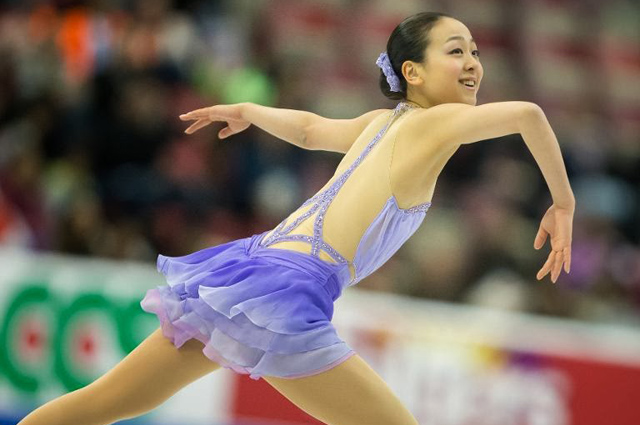Returning home from Sochi empty-handed, Olympic figure skater Mao Asada seemed unfazed even as she faced heavy criticism of her shortcomings in clinching the gold.
Asada fell short of expectations that she would surpass her silver win at Vancouver in 2010, finishing sixth at the Winter Games after stumbling on her trademark triple axel.
Adding an additional blow to Asada’s disappointment, Tokyo Olympic organizing committee chief Yoshiro Mori criticized her for costing Japan the gold.
“She always falls at the most critical time,” said Mori, who later explained that his comments had been taken out of context in later remarks.
Asada said she did not regret attempting the difficult triple axel in Sochi, seemingly brushing off Mori’s remarks.
“I heard what he had said after I had already skated, and my reaction was: ‘Oh, he said something like that about me?’” Mao explained at a press conference at the Foreign Correspondents’ Club of Japan in Tokyo.
“I understand that human beings do make mistakes and it’s undeniable that I did fall, so I have to accept it.”
“But people don’t want to fail, so my first reaction was that it was something that he shouldn’t have said. That’s the impression that I had. Perhaps Mr. Mori has regrets that he made such a comment.”
Asada is the only woman to attempt the difficult triple axel in competition. Skating commentators have suggested that Asada would have had a better chance had she ommitted the triple axel from her routine.
But the 23-year-old defended her move.
“The triple axel is something that empowers me,” said Asada. “Whenever I try to do it and it goes well, the sense of accomplishment is simply wonderful. This is something that I have always wanted to continue to do: to challenge myself and try the triple axel.”
Asada also said she was planning on continuing her skating career after next month’s World Championships in Saitama. She had previously spoken about plans of retiring after Sochi.
By Maesie Bertumen
Image of Asada skating in competition in 2013: Nick Verreos
Updated On March 5, 2018








